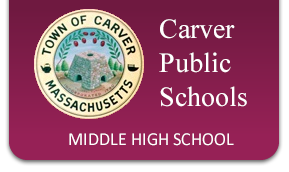Mock Trial
2022-2023 Mock Trial Members:
Corin Clougherty
Vera McGrail
Emma Sanson
Abigail Pflaumer
Jay Bonney
Darin Spence
Meghan Daly
Ceilidh Mackechnie
Mia Milonas
Crystal Pires
Lillian Wiafe
Ava Wood
Dates of Competitions:
Tuesday, 1/16/24
against South Shore Charter School
against South Shore Charter School
Tuesday, 1/23/24
against Pembroke High School
against Pembroke High School
Tuesday, 1/30/24
against Marshfield high School
against Marshfield high School
What is Mock Trial?
Program Overview
The Massachusetts Bar Association’s Mock Trial Program offers high school students, from across the state, an opportunity to test their skills as lawyers and witnesses in a simulated courtroom competition. Throughout the competition, students learn about the fundamentals of the American judicial system and how it can impact their lives.
The Competition
Every September, high schools from across Massachusetts register to compete. The tournament officially starts in January and runs through the Mock Trials Finals in March.
- Schools are divided into 32 geographic regions and compete in three preliminary rounds. The team with the greatest percentage of wins in each region advances. If two or more teams within a geographic region have the same percentage of wins, tiebreaker contests follow.
- Thirty-two regional winners then compete against one another. The matches and trials will be assigned at random. On the same day, the 16 winners from the regionals compete by random draw.
- The “Elite Eight” and “Final Four” are then held on the same day.
- The State Finals are held in March.
- The state champion — Team Massachusetts — competes for the national title.
Competition Benefits
The Mock Trial Program benefits high school participants in many ways. The overall purpose of the tournament is to provide an educational benefit, including:
- Furthering students’ understanding of the law, court procedures, civil liberties and our legal system
- Increasing students’ proficiency in basic life skills, such as listening, speaking, reading and reasoning
- Developing students’ advocacy skills, regardless of which side of the case is being represented and irrespective of the party with which students most identify
- Promoting better communication and cooperation between teachers, students, the schools and the legal profession
- Heightening students’ consciousness of law-related professions and the academic studies that lead to those professions



